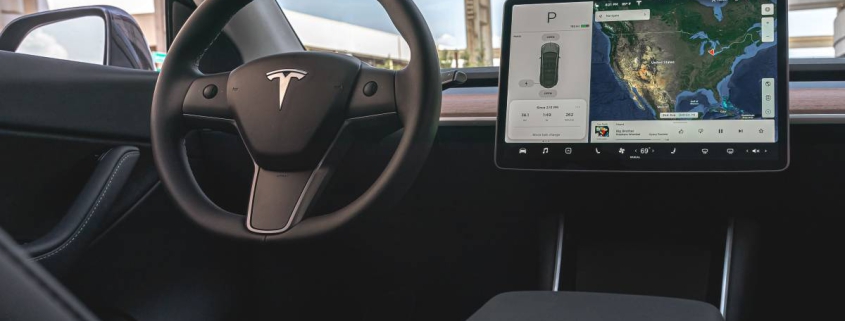The Canadian automotive industry wants to ban Chinese software.
The Canadian automotive industry is calling on the federal government to follow the example of the United States and ban Chinese software and hardware used in connected vehicles on North American roads. This initiative, driven by concerns related to national security, could lead to a ban on key components, potentially excluding Chinese vehicles from the North American market. On September 23, the U.S. Department of Commerce proposed measures to restrict the use of these technologies due to risks such as data collection on drivers (and owners) and the potential manipulation of connected vehicles and American infrastructure.
An investigation was launched on this topic by the White House in February.
**Similar Measures for Canada**
Chrystia Freeland, Minister of Finance and Deputy Prime Minister of Canada, stated this week that the country is “absolutely” considering a similar ban. She emphasized that the Canadian government takes China’s cybersecurity threats seriously.
**Tariffs and Ongoing Consultations**
Starting on October 1, a 100% tariff (actually 102.5%) will be applied to electric vehicles manufactured in China and imported into Canada. Although this measure currently only affects Tesla and Polestar, it could be expanded if cybersecurity concerns are confirmed. Chrystia Freeland also mentioned that consultations with the industry are ongoing, stating that the government is assessing the need for new restrictive measures.
**Harmonization with the United States**
Brian Kingston, CEO of the Canadian Vehicle Manufacturers Association (CVMA), supported the American initiative, stating that “the risks identified in the United States regarding connected vehicle technologies also affect Canada.” The Canadian Automotive Parts Manufacturers Association expressed a similar sentiment.
**Risks of Connected Vehicles**
Nearly all new vehicles are now “connected,” equipped with cameras, microphones, Bluetooth connectivity, and network hardware for Internet access. This allows for data sharing inside and outside the vehicle, which China could potentially use for espionage purposes.
**Challenges for the Automotive Industry**
If the proposed ban on software were to take effect in 2027 and hardware in 2030, some manufacturers may need more time to comply with these new requirements. According to the Alliance for Automotive Innovation, very few hardware or software for connected vehicles currently imported come from China, but manufacturers will need to find new suppliers to comply with the new rules.
**A Call to Action for Canada**
Ontario Premier Doug Ford urged Canada to closely follow its American allies. “Canada must stay in sync with our American allies and do the same,” he said in a message posted on the X platform.
The Canadian and American automotive industries stand united against the growing threat posed by connected vehicle technologies from China and Russia. While the United States is moving towards bans, Canada could follow suit quickly.



